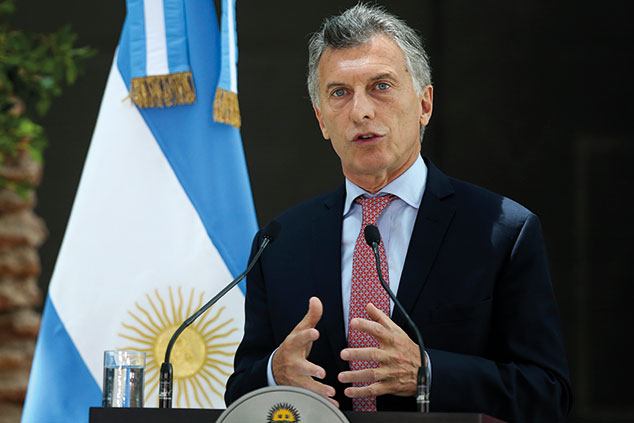
“If you are going to go, go big and get on with it,” says the Financial Times. Argentina and the International Monetary Fund (IMF) have done exactly that, agreeing a large financing deal unexpectedly quickly. Argentina will have access to a $50bn credit line, and in return will give the central bank full independence and aim for a balanced primary budget (spending before interest-rate payments) by 2020. These are “wise” measures, and in line with President Mauricio Macri’s plans. “He is as close to economically orthodox as any president in decades.”
Why did he need help in the first place? Argentina was the victim of a panic attack among investors a few weeks ago. All emerging markets sold off as a rising dollar and the prospect of higher US interest rates reduced demand for riskier assets such as emerging markets. Argentina is among the most vulnerable due to its huge current account, or external deficit. This shortfall with the rest of the world is worth around 5% of GDP and must be plugged with foreign capital.
A hostile environment for emerging markets always leads to capital flight. Not only was Argentina unusually reliant on foreign money anyway, but it unnerved investors by raising its inflation target when inflation “refused to decline quickly enough”. The Argentine peso, which has lost almost a fifth since April, looked vulnerable to a run.
Inflation is still at 28%, and the state will need to keep a lid on spending to bring it down, says Lex in the FT. That could affect Macri’s popularity when elections are due next year. Still, a cheaper and more stable currency should encourage foreign investment, crucial to productivity and long-term growth. It is currently worth 2% of GDP, half the regional average. This IMF package is good news.